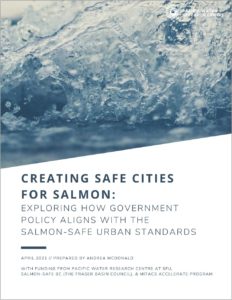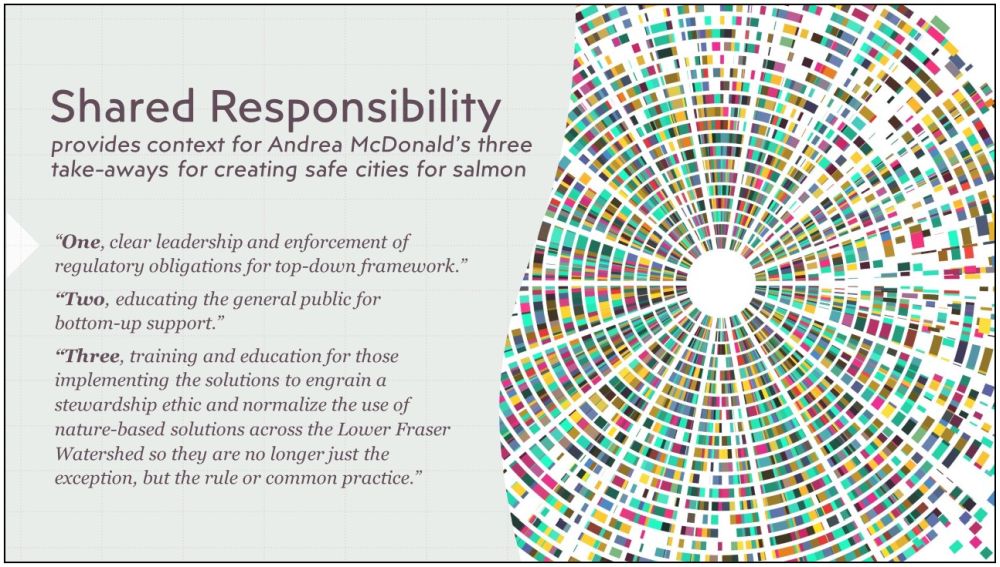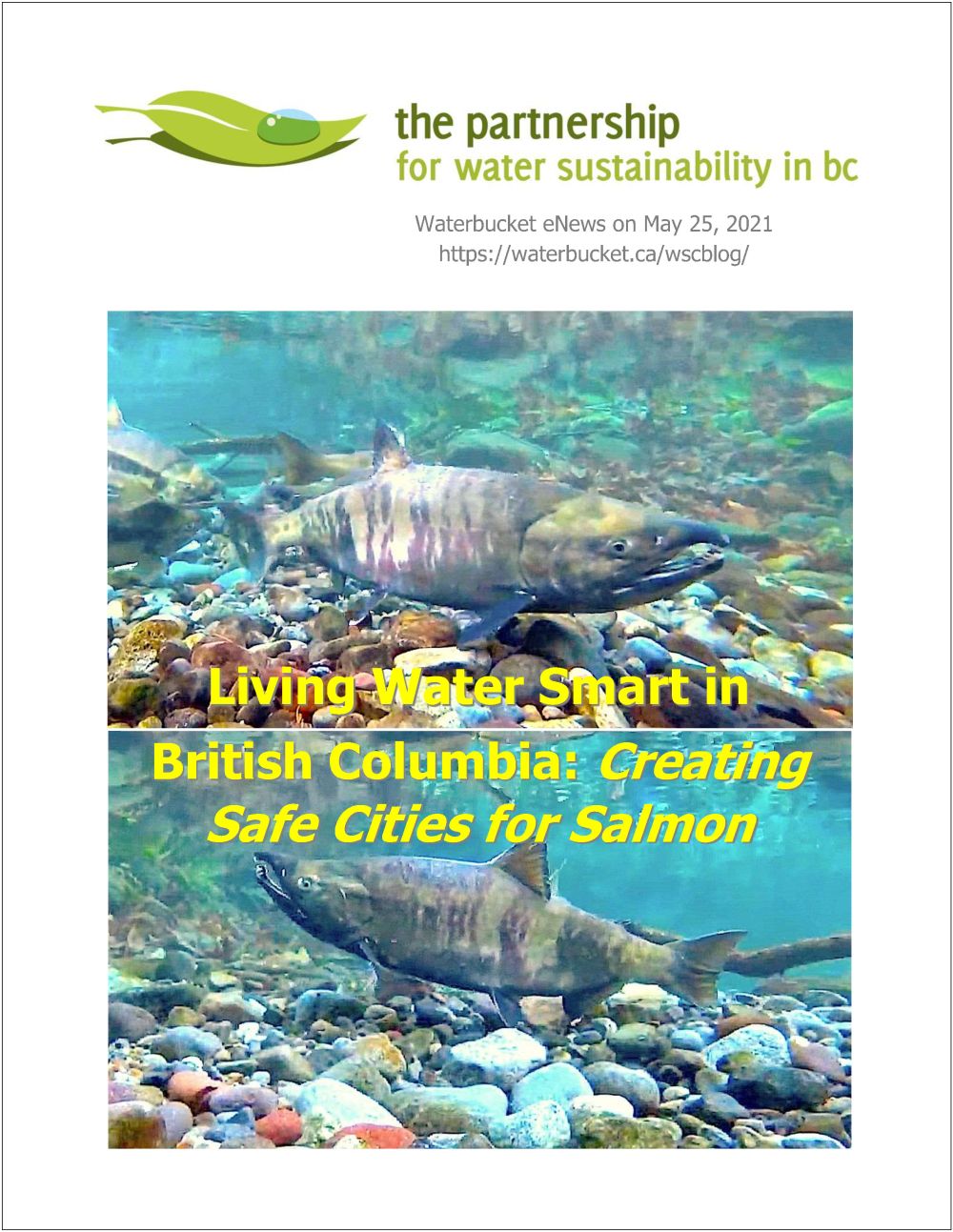IMPLEMENTATION OF NATURE-BASED SOLUTIONS FOR CAPTURING RAIN WHERE IT FALLS: “There are lots of great efforts being made (in the Lower Mainland region of British Columbia). But there’s a big problem. They’re not being uniformly made,” stated Andrea McDonald, author of Creating Safe Cities for Salmon (May 2021)
Note to Reader:
Download a PDF of Living Water Smart in British Columbia: Creating Safe Cities for Salmon to learn about a research project conducted by Andrea McDonald, a graduating student in the School of Resource and Environmental Management at Simon Fraser University. Her findings highlight the importance of communication and understanding when it comes to the implementation of nature-based solutions to ameliorate the adverse impacts of urban development.

Creating Safe Cities for Salmon
“Rapid urbanization of the Lower Fraser Watershed (LFW) has dramatically altered the natural hydrology of the landscape. The building up of cities in the LFW has resulted in the reduction and degradation of valuable wild Pacific salmon habitat and waterways,” states Andrea McDonald, author of a joint research study by the Pacific Water Research Centre at Simon Fraser University and the Salmon-Safe BC team at the Fraser Basin Council.
TO LEARN MORE:
 Download a copy of Creating Safe Cities for Salmon: Exploring How Government Policy Aligns with the Salmon-Safe Urban Standards
Download a copy of Creating Safe Cities for Salmon: Exploring How Government Policy Aligns with the Salmon-Safe Urban Standards
Focus on Nature-Based Solutions
“Declining water quality and loss of natural habitat due to urbanization only adds an additional layer of stress to the already vulnerable wild salmon populations of the LFW. Green infrastructure, or nature-based solutions, is a valuable tool used to ameliorate the adverse ecological impacts of urban development. Yet, implementation of these solutions across the LFW, in many case, is seen as the exception rather than the rule.”
“In carrying my research, I interviewed experts in the field and completed a policy analysis of urban development and salmon protection standards across the LFW. Using the scientifically derived standards from the Salmon-Safe Urban eco-certification as an evaluative framework for policy comparison, the study showcases the many efforts being made across the region to develop cities more sustainably with wild salmon populations in mind.
“However, my research also demonstrates how the implementation of these nature-based solutions to protect local salmon populations has been patchy, challenging, and lengthy due to inadequate statutory foundations and enforcement, lack of public support and understanding, and limited educational opportunities and training programs.”

Shared Responsibility in a Local Government Context
 “Creating Safe Cities for Salmon seems straightforward as a vision and a goal, right? But creating this outcome depends on bringing together a myriad of small pieces to create the big picture,” observed Kim Stephens, Executive Director, Partnership for Water Sustainability in British Columbia. “This takes a career and, speaking from experience, it requires enduring commitment! So, I asked Andrea, what is your vision of how you will take what you have learned from your research and the people you have interviewed, and translate this information and understanding into a career?”
“Creating Safe Cities for Salmon seems straightforward as a vision and a goal, right? But creating this outcome depends on bringing together a myriad of small pieces to create the big picture,” observed Kim Stephens, Executive Director, Partnership for Water Sustainability in British Columbia. “This takes a career and, speaking from experience, it requires enduring commitment! So, I asked Andrea, what is your vision of how you will take what you have learned from your research and the people you have interviewed, and translate this information and understanding into a career?”
“I am inspired,” Andrea replied instantly. “I feel like I know the direction that I will take and that is local government. And I am passionate about having a career in local government because that is where I see the needed changes happening. It is where I see bringing my environmental perspective to both policy making and implementation.”
“Andrea’s story is compelling. She delved deeply to gain an appreciation for what matters regarding nature-based solutions for protection of salmon and their habitat. When I asked her about the top three takeaways from her research, she responded without hesitation. Andrea framed her observations in terms of Shared Responsibility and what this means in a local government context. I was impressed. Andrea gets it! Her observations are succinct and provide a mind-map for Creating Safe Cities for Salmon.”
TO LEARN MORE:
Download a PDF copy of Living Water Smart in British Columbia: Creating Safe Cities for Salmon.


